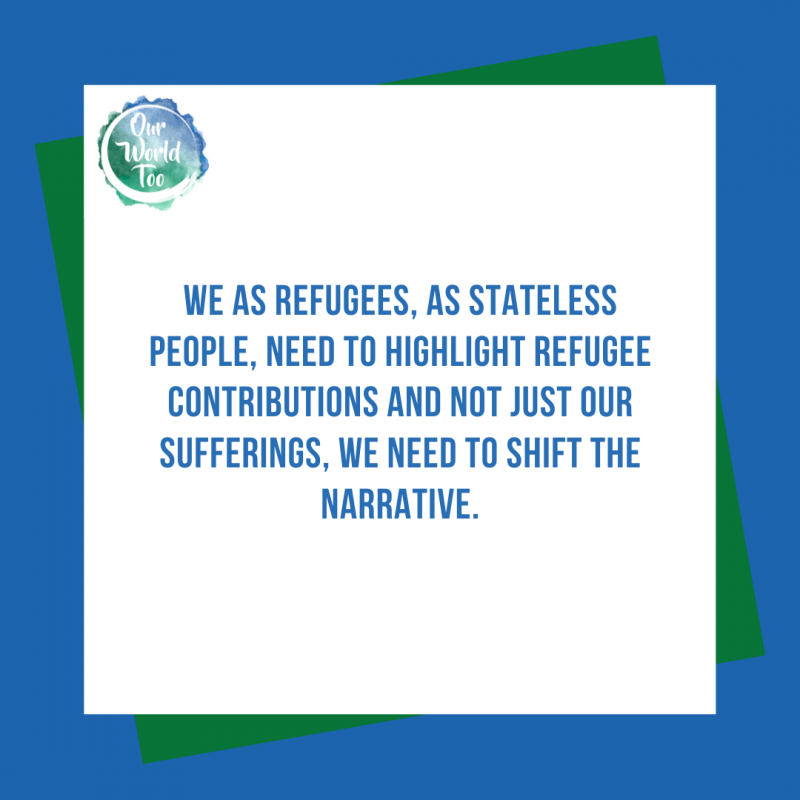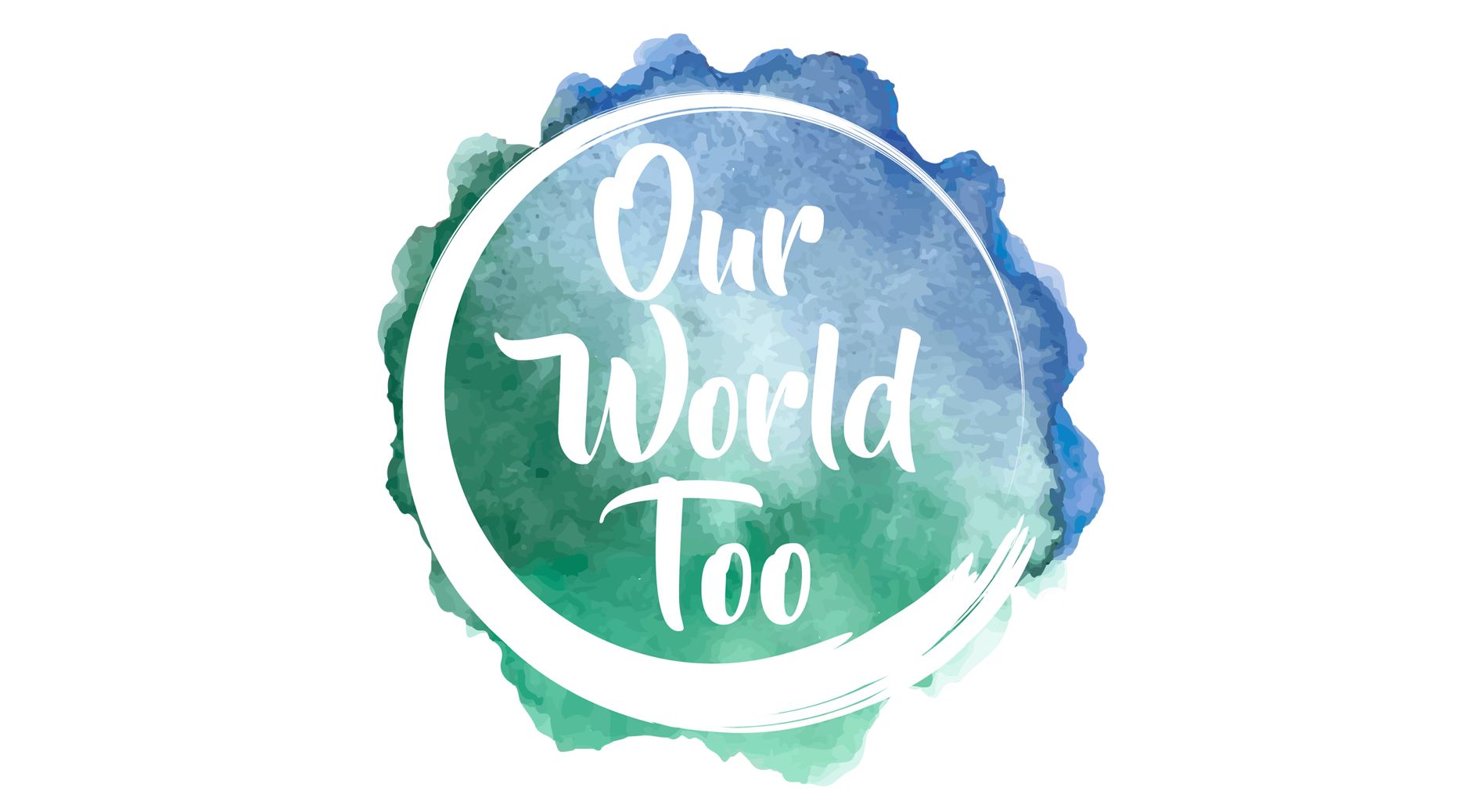We need to highlight refugee contributions
I was 12 years old when I found out I was a refugee. My parents fiercely protected us from being labelled refugees but after they separated, my siblings and I had to move in with my grandparents who lived in a Palestinian refugee camp in Lebanon. I can still remember seeing the camp for the first time and the fluttering blue UNRWA flag that caught my eye.
I remember feeling jealous of my friends because they could spend time with their families. It was difficult for me as a child experiencing parental separation whilst trying to grapple with my newfound identity as a Palestinian refugee living in camp. Even though my mother was in the same country, I could only talk to her on the phone because she lived in a different camp with higher security risks. One day I had enough, and I told my father we didn’t want his money, we just wanted him to be with us. He resigned from his job in the UAE the next day and came to join us. I was even able to meet my mother again and live like a normal teenager, well as normal as a teenager can be living in a refugee camp.
People don’t know much about Palestinians in Lebanon, we’ve been here for 72 years and we’re still considered foreigners. We experience discrimination at every level, no one lets us forget that we’re refugees. The government supports our right of return, but this is used to deny us basic human rights. We’re required to get work permits even though we’re banned from working in 72 professions including medicine, engineering and even driving taxis. We can learn medicine and engineering in university but if we want to work it has to be through the black market and we’re often exploited because we’re refugees.
Palestinian women in Lebanon are invisible and there are a lot of gender inequalities in MENA, Lebanon and within refugee camps. I want to amplify our voices and our contributions. We as refugees, as stateless people, need to highlight refugee contributions and not just our sufferings, we need to shift the narrative. People in camps also need to be treated with dignity. When you’re displaced, you’re constantly aware that this isn’t home and its only temporary.

In Lebanon, all of our stories are intimately connected with the right of return, the camp isn’t our destiny. To me home is a feeling not a place, it’s a place I feel safe and connected both spiritually and emotionally with the people, somewhere I am not discriminated against. I think of Palestine as home and I’m connected to it through my future. Palestine is my future home.
